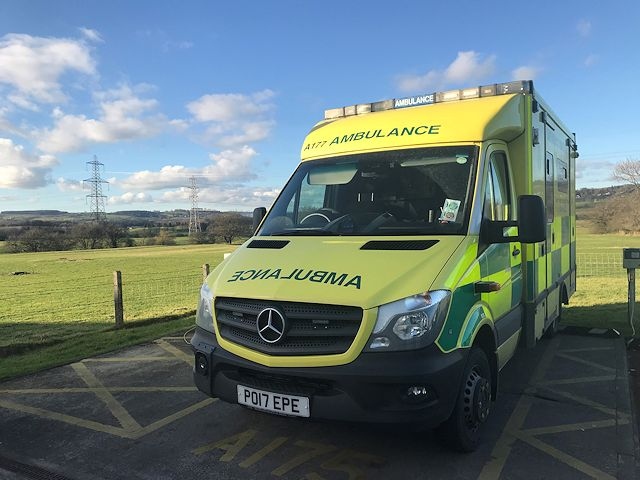Ambulance service urges the public to use 111 online as hot weather continues
Date published: 14 June 2023

As long periods of warm sunshine are expected to stay, North West Ambulance Service (NWAS) is asking everyone to take extra care to enjoy the hot weather safely
As long periods of warm sunshine are expected to stay, North West Ambulance Service (NWAS) is asking everyone to take extra care to enjoy the hot weather safely and to use services wisely ahead of three-day junior doctors strike.
As the temperatures rise, so do the number of 999 calls the ambulance service receives with Tuesday (12 June) seeing a 30% increase compared to the same day last year. The public is reminded to only to dial in the event of a life-threatening or potentially life-threatening emergency.
This comes as the British Medical Association (BMA) has announced a three-day walkout of junior doctors from 14-17 June after A&Es across the country experienced the busiest May on record.
Ged Blezard, director of operations for NWAS, said: “Tried and tested plans are in place to mitigate the risk to public safety, however with industrial action taking place, coupled with the high temperatures we’ve been experiencing it is inevitable that we will see service disruption across the NHS.
“As always, you should call 999 in a life-threatening emergency but as the hot weather continues there are things you can do to keep yourselves safe in the sun – such as keeping well hydrated, using sunscreen and keeping out of the direct sunshine when it’s at its hottest.
“For those in need of urgent medical help but it’s not an emergency, NHS 111 online is available to offer expert advice. It can direct you to where you can find most appropriate care or you may get a call back from a health professional.”
Here are some top tips to help stay safe whilst temperatures continue to soar:
- In the heat
Drink lots of water – It is important to keep hydrated as you lose more fluid than you take in during hotter temperatures, this is also vital if you are doing any physical activity and when you are travelling long distances.
Keep out of the sun – It is best to try to stay in the shade between the hours of 11am to 3pm, as this is when the sun is at its hottest.
Wear sunscreen and sunglasses – Apply a sun cream of at least factor 15 that includes UVA protection and make sure your sunglasses have UV protection lenses to protect your eyes.
Loose clothing – Wear light, loose fitting cotton clothes along with a hat.
Look out for others – Keep a check on those vulnerable to the effects of heat, especially the elderly, young children and babies and those who have a heart or respiratory condition such as asthma.
Never leave babies, young children or animals in a parked vehicle – Temperatures can soar in a parked car very quickly, and children under the age of two are particularly at risk of getting heatstroke or heat exhaustion.
- Water safety
Unsupervised water – Don’t be tempted to take a dip in reservoirs, canals, lakes and rivers to cool down. There are hidden dangers lurking under the surface such as deep and cold water, debris and underwater currents which can result in drowning.
Keep an eye out – Children should always be supervised when they are in or around water and make sure they are swimming within designated areas.
Don’t be pushy – Never run, push or jump on others when in a swimming pool or at the beach and if you see someone in difficulty tell a lifeguard or call 999.
On the water – If out in a boat or canoe always wear a lifejacket.
- Out and about
Road safety – When out on a bike or scooter always wear a helmet, be aware of busy roads and cross roads safely.
Dangerous playgrounds – Make sure you know where your children are going to ensure they aren’t playing in any hazardous areas such as railway tracks or abandoned buildings and always arrange a time for when they are going to be home.
Stick together – Don’t walk away and leave friends to get home on their own.
Drink alcohol sensibly – If you’re enjoying a tipple in the sunshine, be sure to know your limits and remember to drink plenty of water as the alcohol will make you even more dehydrated.
By taking these steps it will help to keep ambulance services free for those who are most in need and also ensure everyone enjoys the sunshine safely.
For more information on when to call 999 and when to go to A&E, you can visit the NHS UK website.
Do you have a story for us?
Let us know by emailing news@rochdaleonline.co.uk
All contact will be treated in confidence.
Most Viewed News Stories
To contact the Rochdale Online news desk, email news@rochdaleonline.co.uk or visit our news submission page.
To get the latest news on your desktop or mobile, follow Rochdale Online on Twitter and Facebook.


